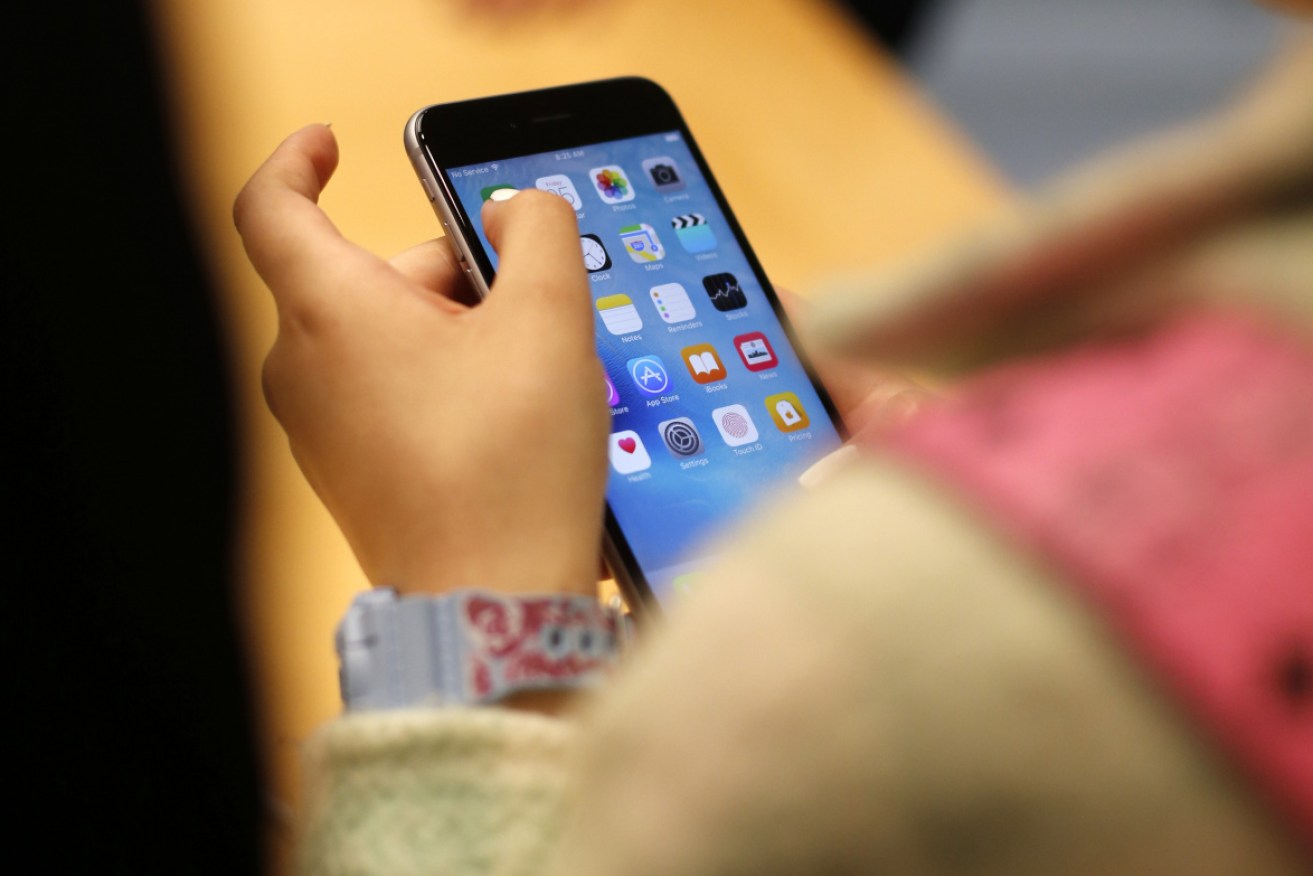Apple’s surrender will make it easier to fix busted devices


Apple has back flipped on its opposition to people repairing their own devices. Photo: AAP
People around the world will be able to fix their Apple devices in the future after the company dropped its opposition to right-to-repair laws in the United States.
Apple has been one of the strongest opponents of consumers having the ability to repair their own devices, according to Leanne Wiseman, associate professor at Griffiths University’s School of Law and chair of the Australian Repair Network.
“They are being designed in a way where it’s not easy to take apart, we know that batteries aren’t simple to remove, the screws are often unique and need an Apple screwdriver to remove, for example,” Professor Wiseman said.
“Apple is realising that the regulators are recognising that this raises serious kinds of economic issues for people, but also around being able to have third parties access and repair these products.”

Apple launched a home repair kit in late 2022 in a bid to see off right-to-repair requirements. Photo: TND
There are 72.62 million iPhones sold in the United States each year, and any mandated changes by US governments will filter through to the international market.
The California right-to-repair law, which Apple initially lobbied against, requires manufacturers to make repair tools, manuals and parts accessible to independent repair shops and customers.
John Gertsakis, director of the eWaste Watch Institute, said there is a growing appreciation and appetite for products that are built to last.
“Consumers can do a lot here, but we need to acknowledge affordability and aggressive sales and marketing things that promote upgrading,” he said.
“I believe Australia needs a repair star-rating that will help consumers make more informed decisions, just like we have the energy star-rating for appliances.”
Why does it matter?
Mr Gertsakis said the right-to-repair is important because it reduces waste and empowers consumers to take control of the products they own.
“It is the first responder ahead of recycling,” he said.
“We need to look at more durable, repairable and ungradable products before we get to recycling.”
Millions of electronic devices such as televisions, smartphones, laptops and computers are discarded in Australia each year, as global electronic waste grew by 21 per cent from 2014 to 2019.
Ms Wiseman said people having access to what they need to repair their own devices isn’t just a waste and sustainability issue.
“Not everyone in the community can afford to buy new appliances or new goods all the time, so secondhand laptops, white goods or appliances are all some people can afford,” she said.
“We also saw recently with the pandemic that when international supply chains break down, we couldn’t get spare parts here in Australia for many of the parts, for example in hospitals with medical equipment.”

The automotive industry must now provide repair details to independent mechanics. Photo: Getty
Right-to-repair in Australia
In Australia, independent repairers now have access to service and repair information from manufacturers after new standards were introduced in 2022, and the automotive industry isn’t the only sector pushing for stronger consumer protections.
Ms Wiseman said farmers worldwide are having trouble when their tractors break down because they don’t have access to the data and tools to repair their equipment, and Australia is no different.
“The National Farmers Union is currently negotiating a memorandum of understanding with John Deere and the Tractor Manufacturers Association of Australia around repairability and access to diagnostic data,” she said.
“Manufacturers aren’t being as honest and transparent as they could be about how their products last and whether you can get access to spare parts and service information.”
The Australian Productivity Commission previously held an inquiry about the right to repair, before releasing its final report in December 2021.
Ms Wiseman said the report recommended changes to intellectual property laws and to give people better product stewardship, but the federal government has yet to act on the recommendations.
“We know that there’s such heavy investment into recycling in Australia, which is great, but repair and reuse really needs to be at the top end to avoid those products going into the waste stream,” she said.
“One of the key ways to keep things in use is to enable them to be repaired and to remove those barriers to repair.”








